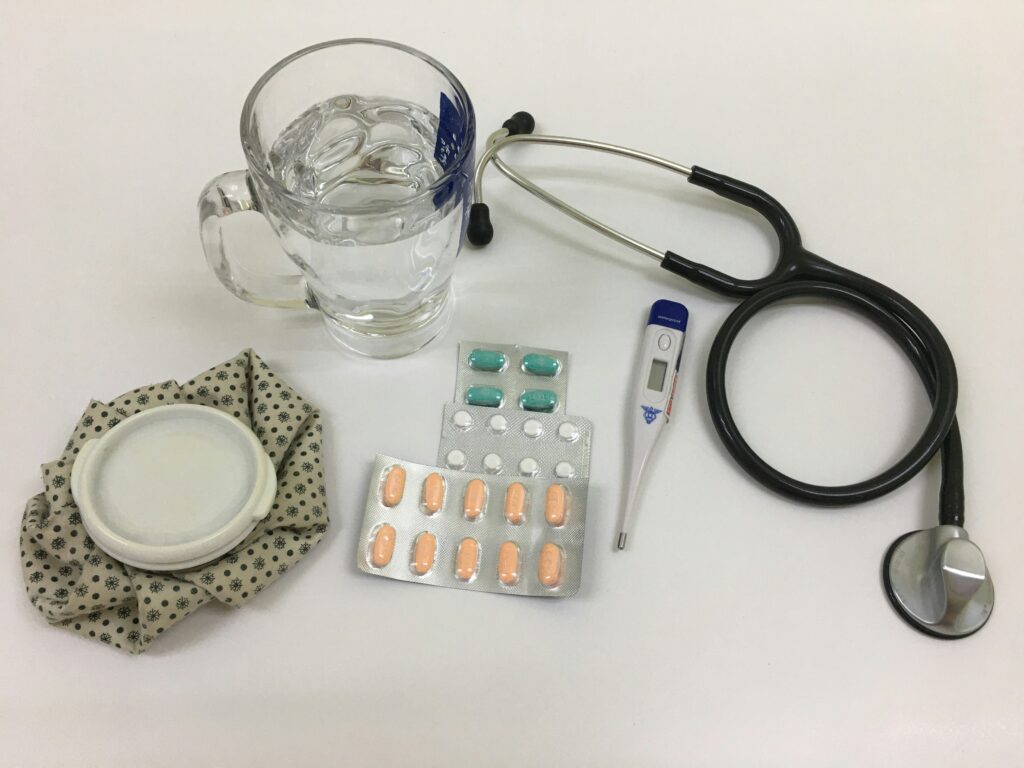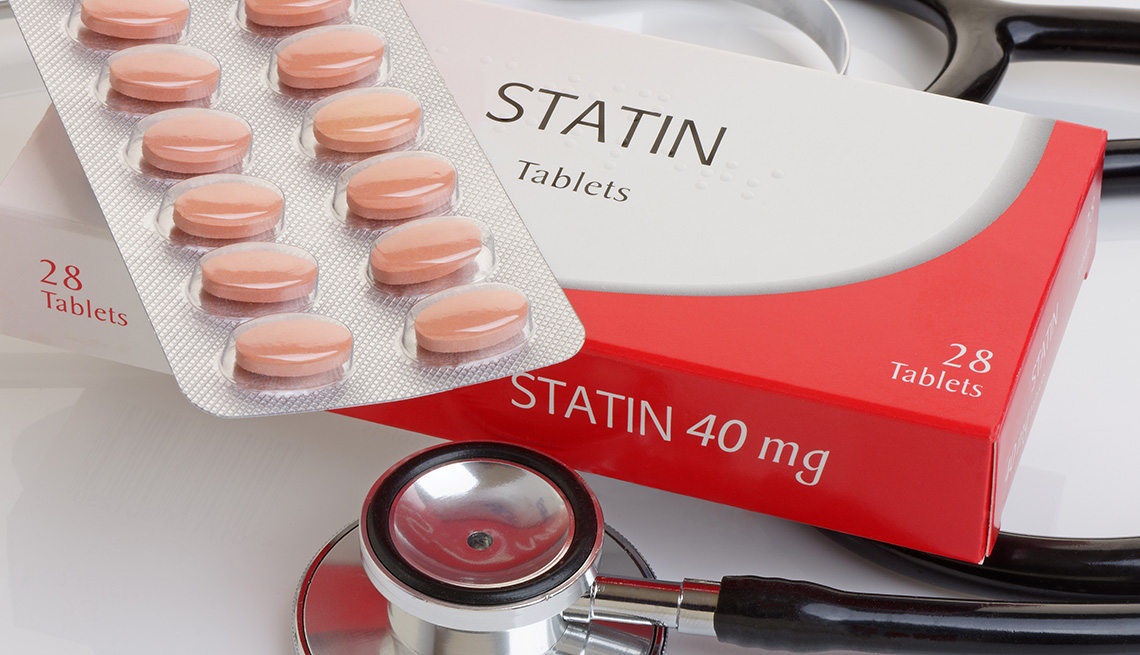Introduction to Statins and their Benefits
Welcome to our comprehensive guide to statin therapy! If you’re concerned about your cholesterol levels and looking for an effective way to lower them, you’ve come to the right place. Statins are a widely prescribed class of medications that have proven benefits in reducing cholesterol and improving heart health. But with so many different statins available, how do you choose the right one for optimal results? In this article, we will explore the various types of statin medications, factors to consider when selecting a statin, potential side effects, risks, and alternative options for lowering cholesterol. So, let’s dive in and discover everything you need to know about making informed decisions regarding your statin therapy!
Types of Statin Medications
When it comes to statin therapy, there are several different medications to choose from. Each type of statin works slightly differently, but they all have the same goal: to lower cholesterol levels and reduce the risk of heart disease.
One commonly prescribed statin is atorvastatin (Lipitor). This medication is known for its effectiveness in lowering LDL cholesterol levels. Another popular option is simvastatin (Zocor), which effectively reduces LDL cholesterol and triglyceride levels.
Rosuvastatin (Crestor) is another commonly prescribed statin proven to lower LDL cholesterol levels effectively. Pravastatin (Pravachol) and lovastatin (Mevacor) are also frequently used options that can help improve lipid profiles.

It’s important to note that each individual may respond differently to different statins. What works well for one person may work less effectively for another. That’s why working closely with your healthcare provider when choosing a statin medication is crucial.
In some cases, combination therapy may be recommended, where multiple types of statins or other medications are used together to achieve optimal results. However, this approach should only be pursued under the guidance and supervision of a healthcare professional.
Remember, finding the proper medication for you will depend on various factors, such as your medical history, current health status, and any potential drug interactions or side effects you may experience.
Working closely with your healthcare provider will ensure that you find the most suitable type of statin medication for your needs – one that helps you achieve optimal results while minimizing any potential risks or side effects associated with treatment. So don’t hesitate to discuss these options with your doctor today!
Factors to Consider When Choosing a Statin
Factors to Consider When Choosing a Statin
Choosing the right statin medication is an important decision that should be made in consultation with your healthcare provider. There are several factors to consider when determining which statin is best for you.
First and foremost, it’s essential to consider your cholesterol levels and overall health. Your healthcare provider will assess your lipid profile, including LDL (bad) cholesterol, HDL (good) cholesterol, and triglyceride levels. Based on these results, they can determine the appropriate target level of LDL cholesterol reduction for you.
Another factor to consider is any existing medical conditions or medications you may be taking. Certain medical conditions, such as liver disease or muscle disorders, may affect the choice of statin medication or require closer monitoring while on therapy.
Additionally, potential drug interactions should be taken into consideration. Some medications can interact with statins and increase the risk of side effects or reduce their effectiveness. It’s crucial to inform your healthcare provider about all prescription and over-the-counter medications you are currently taking.
Your lifestyle habits also play a role in choosing the proper statin medication. Certain statins may be more suitable for you if you have difficulty adhering to strict dietary restrictions or struggle with weight management.
Cost and insurance coverage can influence the selection process. Different brands of statins vary in price, so it’s important to discuss options that fit your budget and explore potential generic alternatives if available.

In conclusion…
Considering these factors when choosing a statin medication will help ensure optimal results and minimize potential risks associated with therapy. Remember that individual responses to different statins can vary significantly; what works well for one person may work less effectively for another. Trusting your healthcare provider’s expertise and having open communication throughout this process will ultimately lead to finding the most suitable option tailored specifically for you!
Potential Side Effects and Risks
When considering statin therapy, it’s essential to be aware of the potential side effects and risks associated with these medications. While most people tolerate statins well, some individuals may experience adverse reactions.
One common side effect is muscle pain or weakness. This can range from mild discomfort to more severe symptoms such as rhabdomyolysis, a rare but serious condition that involves muscle breakdown. It’s essential to report any unusual muscle pain or weakness to your healthcare provider immediately.
Another possible side effect is liver damage. Statins can sometimes cause an increase in liver enzymes, which could indicate liver problems. Regular monitoring of liver function is typically recommended for those taking statins.
In addition, some individuals may experience gastrointestinal issues such as nausea, diarrhoea, or constipation while on statin therapy. These symptoms are usually mild and go away on their own over time.
Rarely, statins have been associated with cognitive effects such as memory loss or confusion. However, research suggests that the benefits of statin therapy outweigh the potential risks regarding cognitive function.
It’s also worth noting that certain factors may increase the likelihood of experiencing side effects from statin use. These include older age, higher doses of medication, and certain underlying medical conditions.
It’s essential to remember that the risk of experiencing significant side effects from statins is relatively low compared to their potential benefits in reducing cardiovascular risk and lowering cholesterol levels.
Effectiveness of Statins in Lowering Cholesterol
Statins have gained widespread recognition for their effectiveness in lowering cholesterol levels. These medications work by inhibiting an enzyme called HMG-CoA reductase, which plays a crucial role in the production of cholesterol in the liver.
Clinical trials and studies have shown that statin therapy can significantly reduce LDL or “bad” cholesterol levels while increasing HDL or “good” cholesterol levels. This is important because high LDL cholesterol is a significant risk factor for cardiovascular disease, including heart attacks and strokes.
The extent to which statins lower cholesterol varies among individuals and depends on factors such as the type and dosage of the statin used, genetics, overall health status, and adherence to lifestyle modifications. Most patients experience a noticeable reduction in their LDL cholesterol levels within weeks to months of starting statin therapy.
It’s important to note that while statins are highly effective at lowering LDL cholesterol, they may not be sufficient for some individuals with extremely high cholesterol levels. In these cases, additional therapies or higher doses of statins may be necessary to achieve optimal results.
In addition to reducing LDL cholesterol levels, statins have also been found to provide other benefits, such as decreasing inflammation markers and stabilizing plaque buildup in arteries. These effects contribute further to reducing the risk of cardiovascular events.
Statin therapy plays a vital role in managing elevated blood cholesterol levels. However, it’s essential to consult with a healthcare professional who can assess individual risks and determine whether this medication is appropriate based on personal circumstances. As with any medication, regular monitoring should be conducted along with lifestyle modifications for long-term management of lipid disorders.
Combining Statins with Other Medications
When it comes to managing cholesterol levels, statin therapy is often a go-to option. However, combining statins with other medications may be necessary to achieve optimal results. The decision to combine medications should always be made by a healthcare professional and based on individual needs and medical history.
One common scenario where combination therapy may be considered is when someone has high cholesterol along with other risk factors such as high blood pressure or diabetes. In these cases, adding additional medications like blood pressure-lowering drugs or glucose-lowering agents can help simultaneously address multiple aspects of cardiovascular health.
Another situation where combination therapy may be beneficial is when someone has a genetic condition that causes extremely high cholesterol levels. In these cases, additional medications called ezetimibe or PCSK9 inhibitors might be prescribed alongside statins to reduce LDL cholesterol further.
It’s important to note that while combining medications can provide added benefits for some individuals, it also increases the potential for drug interactions and side effects. That’s why close monitoring by healthcare professionals is crucial when using multiple medications concurrently.
If you are currently taking statins and your doctor suggests adding another medication to your treatment plan, don’t hesitate to ask questions and voice any concerns you may have regarding potential interactions or side effects. Remember that open communication between patients and healthcare providers is critical to finding the most effective approach tailored to each individual’s needs.
Combining statin therapy with other medications can sometimes enhance the management of cholesterol levels and overall cardiovascular health. However, considering individual circumstances, this decision should always be made under medical supervision,. Trusting your healthcare provider’s expertise will ensure safe and effective treatment outcomes in managing your cholesterol levels effectively alongside any other existing conditions you may have
Tips for Managing Statin Therapy
When it comes to managing statin therapy, a few key tips can help ensure optimal results. First and foremost, it’s essential to follow your doctor’s instructions and take the medication as prescribed. This means taking the correct dosage at the recommended time each day.
In addition, it’s important to make lifestyle changes that support the effectiveness of statins in lowering cholesterol levels. This includes adopting a healthy diet low in saturated fats and high in fruits, vegetables, whole grains, and lean proteins.
Regular exercise is also crucial for managing statin therapy. Engaging in physical activity regularly helps improve heart health and can further lower cholesterol levels.
Monitoring your cholesterol levels regularly is another important aspect of managing statin therapy. Regular blood tests will allow you and your doctor to track progress and make any necessary adjustments to your treatment plan.
It’s also essential to be aware of potential side effects associated with statins. While most people tolerate these medications well, some may experience muscle pain or weakness, digestive issues, or liver problems. If you notice any unusual symptoms while taking statins, it’s important to notify your healthcare provider right away.
Maintaining open communication with your healthcare team is vital when managing statin therapy. Be sure to discuss any concerns or questions you may have about the medication or its effects on your health.
By following these tips for managing statin therapy effectively, you can work towards achieving optimal results in lowering cholesterol levels and improving overall heart health!
Alternative Options for Lowering Cholesterol
While statin therapy is a common and effective approach to lowering cholesterol, it may not be the right choice for everyone. Some individuals may experience side effects or have contraindications that make them unsuitable candidates for statins. If you fall into this category or simply prefer to explore alternative options, there are several strategies you can consider.
One natural option is adopting a heart-healthy diet. This includes consuming foods rich in soluble fiber such as oats, barley, and legumes, as well as incorporating healthy fats like avocados and olive oil into your meals. Additionally, limiting your intake of saturated fats found in red meat and full-fat dairy products can help lower cholesterol levels.
Regular physical activity is another key component of managing cholesterol levels naturally. Engaging in aerobic exercises like walking, swimming, or cycling can increase HDL (good) cholesterol while decreasing LDL (bad) cholesterol.
Certain supplements have also shown promise in reducing cholesterol levels. For example, plant sterols or stanols can be taken in supplement form or found naturally in certain fruits and vegetables. These compounds work by blocking the absorption of dietary cholesterol.
Quitting smoking and moderating alcohol consumption can positively impact your overall cardiovascular health and potentially lower your cholesterol levels.
Remember that before implementing any alternative methods to manage your cholesterol levels, it’s crucial to consult with a healthcare professional who can provide personalized guidance based on your specific needs.
By exploring these alternative options alongside lifestyle changes recommended by medical professionals, you may find an effective strategy for maintaining healthy cholesterol levels without relying solely on statin medications!
Conclusion
In the journey of managing cholesterol levels, statin therapy plays a crucial role in achieving optimal results. By understanding the different types of statin medications and considering various factors when choosing the right one, individuals can take control of their health and lower their cholesterol effectively.
While statins are known for their cholesterol-lowering effects, it’s important to note that individual responses may vary. Some people may see significant improvements within a few weeks, while others might require several months to experience noticeable changes. Patience is key when it comes to statin therapy.
Factors such as age, gender, overall health status, and lifestyle habits all play a role in determining whether statin therapy is recommended. Consulting with a healthcare professional is essential to assess the individual’s risk factors and determine if medication is necessary.
Like any medication, there are potential side effects associated with statins. These can range from mild symptoms such as muscle pain or digestive issues to rare but serious complications like liver damage or diabetes development. Individuals on statin therapy must be aware of these risks and report any unusual symptoms promptly.
Managing cholesterol levels isn’t just about relying solely on medications; lifestyle changes also play an integral part in maintaining cardiovascular health. Incorporating regular exercise routines and adopting a heart-healthy diet rich in fruits and vegetables while limiting saturated fats and processed foods can significantly impact cholesterol levels alongside pharmacological intervention.
In conclusion (without using those words), choosing the right statin medication for optimal results requires careful consideration of various factors including personal health conditions, potential side effects and risks, and adherence to healthy lifestyle practices.
Comprehensive treatment plans often involve combining medication with dietary modifications, daily physical activity,and other interventions tailored toward lowering LDL (bad)cholesterol levels.
Remember, the goal is not only reducing high cholesterol numbers but also preventing cardiovascular events.
Speak with your healthcare provider today about what approach best suits your needs.
Starting this conversation will pave the way for better heart health and a healthier future.
How long does it typically take for statins to show cholesterol-lowering effects?
When it comes to statin therapy, one common question that arises is how long it takes for these medications to show cholesterol-lowering effects. While the exact timeframe can vary from person to person, it’s important to understand the general timeline and factors that may influence the results.
Typically, statins start working within a few weeks of starting treatment. However, noticeable changes in cholesterol levels may take longer – usually around four to six weeks or sometimes even longer. This is because statins work by inhibiting an enzyme involved in cholesterol production in the liver, which gradually reduces LDL (bad) cholesterol levels over time.
It’s important to note that individual response can vary depending on several factors, such as baseline cholesterol levels, genetics, overall health status, and adherence to medication and lifestyle modifications. Regular monitoring of cholesterol levels will help gauge the effectiveness of statin therapy and allow adjustments if necessary.
Remember that while statins are effective in lowering LDL cholesterol, they should be used as part of a comprehensive approach that includes lifestyle changes such as healthy eating habits and regular exercise. Combining these strategies with statin therapy can lead to optimal results in managing high cholesterol.
Keep in mind that every individual is unique, and your healthcare provider is best equipped to determine how long it might take for you specifically to see the desired effects of statin therapy based on your medical history and current condition. So don’t hesitate to reach out for personalized advice!
What factors determine whether statin therapy is recommended?
When it comes to determining whether statin therapy is recommended, there are several factors that healthcare professionals take into consideration. One of the primary factors is an individual’s cholesterol levels. If a person has high levels of LDL (bad) cholesterol or low levels of HDL (good) cholesterol, statins may be prescribed.
Another factor that plays a role in recommending statin therapy is a person’s overall cardiovascular risk. This includes factors such as age, family history of heart disease, smoking status, blood pressure, and diabetes. If someone has multiple risk factors for heart disease, their doctor may recommend starting them on statin medication.
Additionally, healthcare providers will consider an individual’s response to lifestyle changes. If someone has made efforts to improve their diet and increase physical activity but still has elevated cholesterol levels, statin therapy may be suggested.
Furthermore, doctors will evaluate any other medical conditions or medications that could interact with statins. Certain health conditions like liver disease or pregnancy may affect whether or not someone can safely take this type of medication.
The decision to recommend statin therapy is based on a comprehensive assessment of various factors, including cholesterol levels, cardiovascular risk profile, and response to lifestyle changes. Individuals need to discuss these considerations with their healthcare provider to determine if this treatment option is right for them
Are there potential side effects associated with statin medications?
When it comes to statin therapy, it is important to be aware of the potential side effects that can occur. While statins are generally considered safe and well-tolerated, like any medication, they may cause adverse reactions in some individuals.
One of the most common side effects of statins is muscle pain or weakness. This can range from mild discomfort to more severe symptoms such as rhabdomyolysis, a rare but serious condition where muscle breakdown occurs. It is essential to notify your healthcare provider if you experience any unexplained muscle pain or weakness while taking statins.
In addition to muscle-related issues, some people may also experience gastrointestinal symptoms such as nausea, diarrhea, or constipation. These typically resolve on their own over time or with dosage adjustments.
Liver damage is another potential concern associated with statin use; however, this occurrence is rare. Routine liver function tests are often conducted before starting statin therapy and periodically thereafter to monitor for any abnormalities.
It’s worth noting that while there have been reports linking statins to cognitive problems like memory loss or confusion, clinical studies have not established a definitive connection between these medications and these side effects.
As always, it’s crucial to discuss any concerns about potential side effects with your healthcare provider before starting a new medication regimen. They will be able to evaluate your risk factors and determine the appropriate course of action for you.
Remember that everyone reacts differently to medications – what works well for one person might not work as effectively for another – so open communication with your doctor is key in managing your health effectively
How is cholesterol managed through lifestyle changes and statin use?
Managing cholesterol levels is a critical aspect of maintaining overall health and reducing the risk of heart disease. While lifestyle changes play a significant role in cholesterol management, statin therapy can be an effective tool to further lower cholesterol levels.
By adopting healthy habits such as eating a balanced diet, engaging in regular physical activity, quitting smoking, and maintaining a healthy weight, individuals can make positive strides in controlling their cholesterol. These lifestyle changes not only improve cardiovascular health but also contribute to overall well-being.
However, for some individuals with high or stubbornly elevated cholesterol levels, lifestyle modifications alone may not be sufficient. In these cases, statin medications are often recommended by healthcare professionals to help lower LDL (bad) cholesterol and reduce the risk of cardiovascular events.
Choosing the right statin medication depends on various factors, including individual needs and preferences, potential side effects, and risks associated with specific drugs. It is crucial to work closely with your doctor to determine the most suitable option for you.
Statin therapy has proven effective in lowering LDL cholesterol levels when taken as prescribed over time. However, it is important to note that results may vary from person to person, and there is no one-size-fits-all approach.
Additionally, combining statins with other medications such as ezetimibe may provide additional benefits for certain individuals who require further reduction in their lipid profile.
Managing statin therapy requires careful monitoring of side effects and regular follow-up appointments with your healthcare provider. Being proactive about managing your treatment plan and discussing any concerns or questions you may have regarding your medication regimen will ensure optimal results and minimize potential risks.
Remember that while statins are widely used due to their efficacy in reducing LDL cholesterol levels significantly, they are not the only option available for managing high cholesterol. For those who prefer alternative approaches or experience intolerable side effects from statins, exploring options like dietary supplements or natural remedies under medical supervision could be considered after consulting with a healthcare professional.



